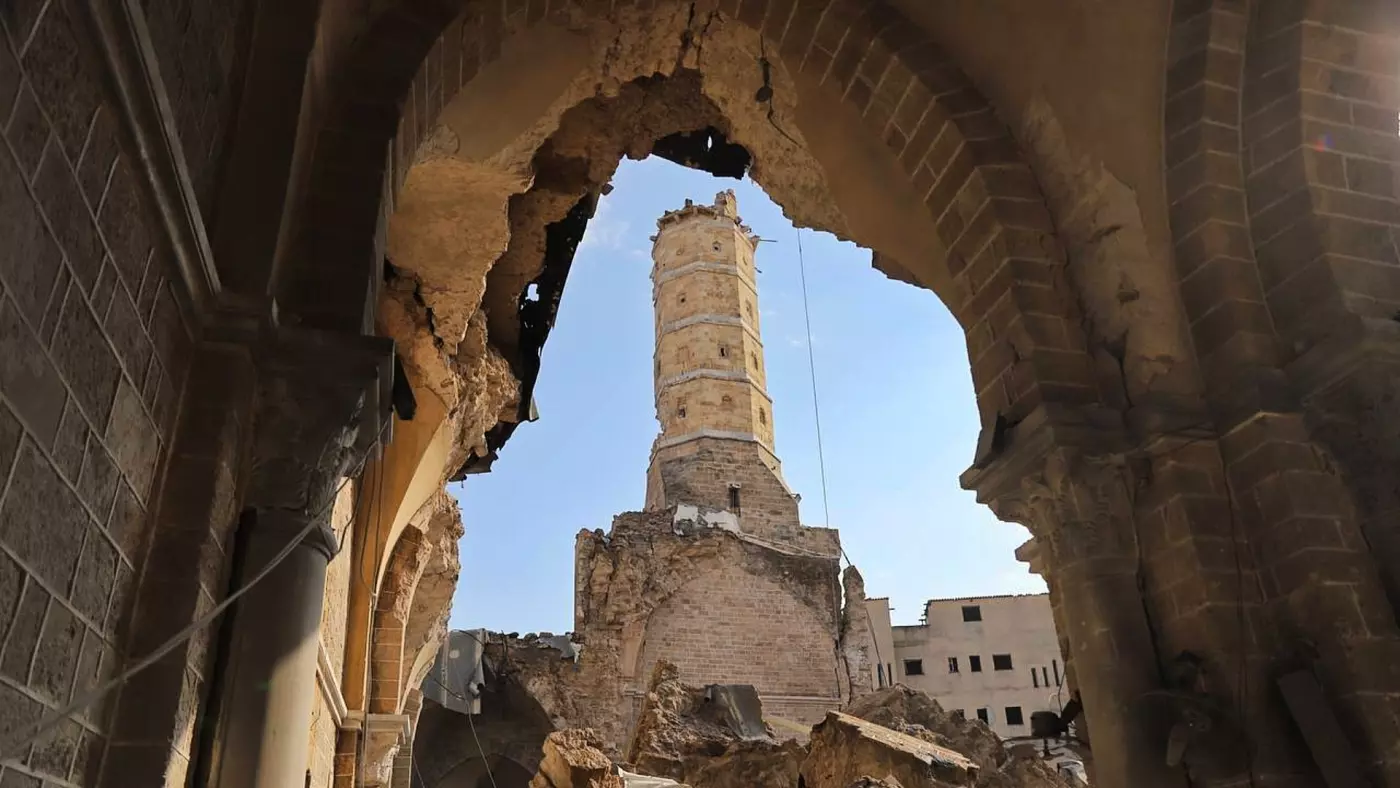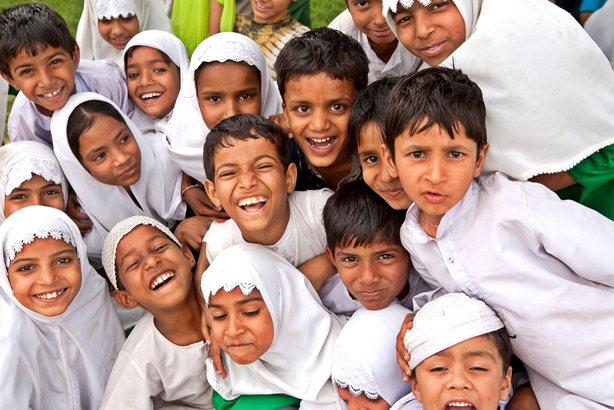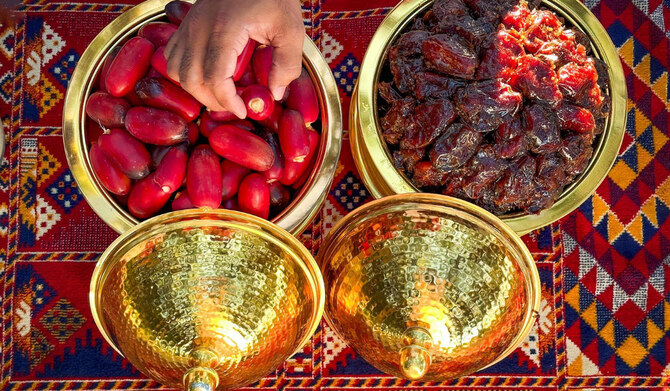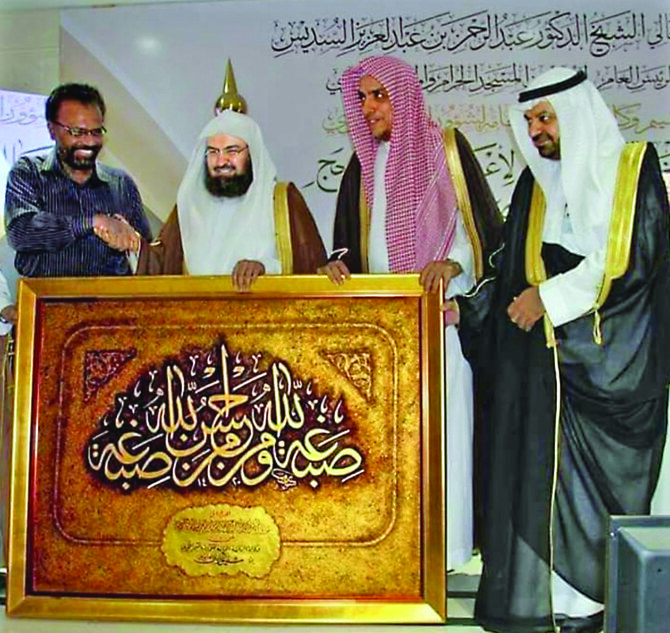 Most modern coffee-drinkers are probably unaware of coffee’s heritage in the Sufi orders of Southern Arabia. Members of the Shadhiliyya order are said to have spread coffee-drinking throughout the Islamic world sometime between the 13th and 15th centuries CE. A Shadhiliyya shaikh was introduced to coffee-drinking in Ethiopia, where the native highland bush, its fruit and the beverage made from it were known as bun. It is possible, though uncertain, that this Sufi was Abu’l Hasan ‘Ali ibn Umar, who resided for a time at the court of Sadaddin II, a sultan of Southern Ethiopia. ‘Ali ibn Umar subsequently returned to the Yemen with the knowledge that the berries were not only edible, but promoted wakefulness. To this day the shaikh is regarded as the patron saint of coffee-growers, coffee-house proprietors and coffee-drinkers, and in Algeria coffee is sometimes called shadhiliyye in his honor.
Most modern coffee-drinkers are probably unaware of coffee’s heritage in the Sufi orders of Southern Arabia. Members of the Shadhiliyya order are said to have spread coffee-drinking throughout the Islamic world sometime between the 13th and 15th centuries CE. A Shadhiliyya shaikh was introduced to coffee-drinking in Ethiopia, where the native highland bush, its fruit and the beverage made from it were known as bun. It is possible, though uncertain, that this Sufi was Abu’l Hasan ‘Ali ibn Umar, who resided for a time at the court of Sadaddin II, a sultan of Southern Ethiopia. ‘Ali ibn Umar subsequently returned to the Yemen with the knowledge that the berries were not only edible, but promoted wakefulness. To this day the shaikh is regarded as the patron saint of coffee-growers, coffee-house proprietors and coffee-drinkers, and in Algeria coffee is sometimes called shadhiliyye in his honor.
The beverage became known as qahwa — a term formerly applied to wine — and ultimately, to Europeans, as “The Wine of Islam.” It became popular among the Sufis to boil up the grounds and drink the brew to help them stay awake during their night dhikr.(Roasting the beans was a later improvement developed by the Persians.)
The Shadhili Abu Bakr ibn Abd’Allah al-‘Aydarus was impressed enough by its effects that he composed a qasida(poem) in honor of the drink. Coffee-drinkers even coined their own term for the euphoria it produced — marqaha. The mystic and theologian Shaikh ibn Isma’il Ba Alawi of Al-Shihr stated that the use of coffee, when imbibed with prayerful intent and devotion, could lead to the experience of qahwa ma’nawiyya (“the ideal qahwa“) and qahwat al-Sufiyya, interchangeable terms defined as “the enjoyment which the people of God feel in beholding the hidden mysteries and attaining the wonderful disclosures and the great revelations.”
The Shadiliyya dervishes were active in the world; it is said that Shaikh Abul Hasan ash-Shadhili, the founder of the order, was reluctant to take on a student who did not already have a profession. It soon became apparent that coffee’s benefits could be extended to the workday and the local economy as well. The southern Arabian climate was ideal for coffee cultivation, and the ports of Yemen, particularly the port of Mocha, became the world’s primary exporters of coffee.
 it was drunk in the Sacred Mosque itself, so that there was scarcely a dhikr ormawlid where coffee was not present.
it was drunk in the Sacred Mosque itself, so that there was scarcely a dhikr ormawlid where coffee was not present.
Jaziri By way of pilgrims, traders, students and travelers, coffee spread throughout the Islamic world. Al-Azhar became an early center of coffee-drinking, and a certain amount of ceremony began to surround it. One 16th century writer describes dervish meetings in Cairo:
They drank coffee every Monday and Friday eve,  putting it in a large vessel made of red clay. Their leader ladled it out with a small dipper and gave it to them to drink, passing it to the right, while they recited one of their usual formulas, mostly “La illaha il’Allah…”
putting it in a large vessel made of red clay. Their leader ladled it out with a small dipper and gave it to them to drink, passing it to the right, while they recited one of their usual formulas, mostly “La illaha il’Allah…”
Another early Yemeni Sufi devotional ritual involved coffee-drinking accompanied by recitation of a ratib, the invocation 116 times of the divine name Ya Qawi, “O Possessor of All Strength!” — a prayerful and witty juxtaposition of sound and sense.
Over time, coffee even acquired an angelic reputation: according to one Persian legend, it was first served to a sleepy Muhammad by the Angel Gabriel. In another story, King Solomon was said to have entered a town whose inhabitants were suffering a mysterious disease; on Gabriel’s command, he prepared a brew of roasted coffee beans, and thereby cured the townspeople.
The Merchants of coffee are three hundred men and shops. They are great and rich merchants, protected by Shaikh Shadhili, who was girded by Weis-ul-karani with the Prophet’s leave.
 Over time, coffee even acquired an angelic reputation: according to one Persian legend, it was first served to a sleepy Muhammad by the Angel Gabriel. In another story, King Solomon was said to have entered a town whose inhabitants were suffering a mysterious disease; on Gabriel’s command, he prepared a brew of roasted coffee beans, and thereby cured the townspeople.
Over time, coffee even acquired an angelic reputation: according to one Persian legend, it was first served to a sleepy Muhammad by the Angel Gabriel. In another story, King Solomon was said to have entered a town whose inhabitants were suffering a mysterious disease; on Gabriel’s command, he prepared a brew of roasted coffee beans, and thereby cured the townspeople.
The Merchants of coffee are three hundred men and shops. They are great and rich merchants, protected by Shaikh Shadhili, who was girded by Weis-ul-karani with the Prophet’s leave.
 Throughout the first few centuries of its history in the Islamic world, coffee’s popularity engendered great controversy. Many were suspicious of the effects of caffeine and the gatherings in which it was consumed — they seemed debauched to some and subversive to others. Coffeehouses competed with mosques for attendance, and as unsupervised gathering places for wits and learned men, provided spawning grounds for sedition. The wags of Istanbul jokingly called the coffeehouses mekteb-i ‘irfan, “schools of knowledge.” Efforts were launched, and persisted for at least a hundred years, to declare coffee an intoxicant forbidden by Islamic law.
Throughout the first few centuries of its history in the Islamic world, coffee’s popularity engendered great controversy. Many were suspicious of the effects of caffeine and the gatherings in which it was consumed — they seemed debauched to some and subversive to others. Coffeehouses competed with mosques for attendance, and as unsupervised gathering places for wits and learned men, provided spawning grounds for sedition. The wags of Istanbul jokingly called the coffeehouses mekteb-i ‘irfan, “schools of knowledge.” Efforts were launched, and persisted for at least a hundred years, to declare coffee an intoxicant forbidden by Islamic law.
During Ramadan in 1539 CE Cairo’s coffeehouses were raided and closed, although only for a few days. Soon after coffeehouses achieved popularity in Constantinople, Sultan Murat IV closed them all; they were to remain dark until the last part of the century. But as soon as the Sultan’s edict went into effect, the coffeehouse patrons, their money and their social life, went elsewhere:
|
In Brussa there are seventy five coffeehouses frequented by the most elegant and learned of the inhabitants. All coffeehouses, particularly those near the great mosque, abound with men skilled in a thousand arts… These became famous only since those of Constantinople were closed by the express command of Sultan Murat IV.
|
The moralists fought a losing battle, for they were opposed by well-educated coffee-drinkers from the highest ranks of the religious and political hierarchy who did not look fondly upon innovative legal prohibitions. The “tavern without wine” offered a respectable gathering place for men to socialize and entertain away from home. Business was especially brisk during Ramadan, when proprietors made extra efforts to draw crowds with storytellers and puppet shows.
Despite coffee’s eventual secularization, the fondness for it in Sufi circles and the motives for its use were not lost. Helveti dervishes were among those who enthusiastically drank coffee to promote the stamina needed for extendeddhikr ceremonies and retreats. Once coffee was readily available throughout the Ottoman Empire, it became a fixture of daily life in the Helveti dergahs, and a legend was born that linked the beneficial effects of a miraculous spring to a morning cup of brew:
 In Persia, coffeehouses evolved into hotbeds of lasciviousness and political dispute soon after they were introduced. Shah Abbas I responded to this situation by installing a mullah in the leading Isfahan establishment; he would arrive early in the morning, hold forth on topics of religion, history, law and poetry, then encourage those assembled there to be off to their work. A pious ambience was thereby promoted, an example was set for other coffeehouses, and a potentially volatile social milieu was somewhat controlled. Poets and mystics occasionally took up permanent residence; for example, Molla Ghorur of Shiraz settled in Isfahan in his old age and established himself at a coffeehouse, which soon became a gathering place for those seeking spiritual guidance.
In Persia, coffeehouses evolved into hotbeds of lasciviousness and political dispute soon after they were introduced. Shah Abbas I responded to this situation by installing a mullah in the leading Isfahan establishment; he would arrive early in the morning, hold forth on topics of religion, history, law and poetry, then encourage those assembled there to be off to their work. A pious ambience was thereby promoted, an example was set for other coffeehouses, and a potentially volatile social milieu was somewhat controlled. Poets and mystics occasionally took up permanent residence; for example, Molla Ghorur of Shiraz settled in Isfahan in his old age and established himself at a coffeehouse, which soon became a gathering place for those seeking spiritual guidance. In private valises, coffee reached Venice in 1615, Marseilles in 1644, and London in 1651; but it did not make its official debut into European high society until 1669, when it was introduced to Parisians by the Turkish ambassador, Suleyman Mustapha Koca. By the end of the century coffee was fashionable throughout Europe, and its cultivation and use subsequently spread to North and South America. Wherever it has been introduced it has become a symbol of hospitality and a vehicle of sociability. The current resurgence in popularity of the coffeehouse is undoubtedly a response to the aggressive marketing efforts of coffee producers and enterprising restaurateurs. It may also contain a longing for the sort of companionship the Shadhiliyya dervishes enjoyed six hundred years ago, as they gathered to remember Allah and passed the cup from hand to hand.
In private valises, coffee reached Venice in 1615, Marseilles in 1644, and London in 1651; but it did not make its official debut into European high society until 1669, when it was introduced to Parisians by the Turkish ambassador, Suleyman Mustapha Koca. By the end of the century coffee was fashionable throughout Europe, and its cultivation and use subsequently spread to North and South America. Wherever it has been introduced it has become a symbol of hospitality and a vehicle of sociability. The current resurgence in popularity of the coffeehouse is undoubtedly a response to the aggressive marketing efforts of coffee producers and enterprising restaurateurs. It may also contain a longing for the sort of companionship the Shadhiliyya dervishes enjoyed six hundred years ago, as they gathered to remember Allah and passed the cup from hand to hand.Post Disclaimer | Support Us
Support Us
The sailanmuslim.com web site entirely supported by individual donors and well wishers. If you regularly visit this site and wish to show your appreciation, or if you wish to see further development of sailanmuslim.com, please donate us
IMPORTANT : All content hosted on sailanmuslim.com is solely for non-commercial purposes and with the permission of original copyright holders. Any other use of the hosted content, such as for financial gain, requires express approval from the copyright owners.
 Sri lanka Muslims Web Portal Diversity and Inclusiveness – Sri Lanka Muslims
Sri lanka Muslims Web Portal Diversity and Inclusiveness – Sri Lanka Muslims






Unfortunately coffee is associated as an Islamic beverage because of its roots and the fact that coffee beans were first grown in East africa and the middle east before they were grown through colonization in the east. As beverage evaluated for its health benefits coffee has more detrimental effects on health than its counterpart tea. Coffee has more than 3 times the caffeine content of tea and new medical studies have linked the effects of caffeine on many ailments. Furthermore besides the caffeine factor, coffee can also lead to acidity of the blood which the body then compensates by returning it to its neutral state by dissolving the calcium in the bone structure. This can lead to osteoporosis and susceptibility to fractures and other bone related ailments.
On the other hand the benefits of tea are numerous and it contains powerful antioxidants in the form of polyphenols and catechins which protect the body from the onslaught of free radical oxidation. Tea also has about the third of caffeine content than coffee and is a much safer stimulant that can be consumed throughout the day. Much of the rich history and traditions of coffee originated in China and Japan and hence the Islamic and Moor world were detached from its great use and benefits.